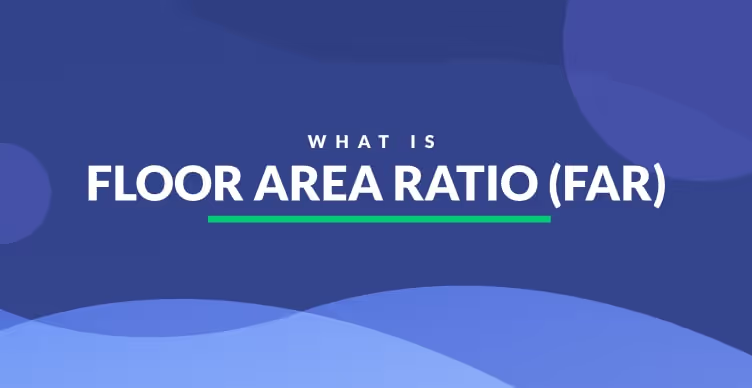The real estate industry continues to climb in all areas, such as New York City and on the West coast. With that, many investors find that they're priced out of the market. Some of these people don't want to give up on real estate investing altogether, so they turn to another strategy. Purchasing turnkey rental properties in undervalued markets can help them generate a passive income.
Most third-party providers have only recently shown up to increase the demand for a turnkey property. However, is this a wise investment option? What is a turnkey property? Here are the answers you need:
What Are Turnkey Properties?
When you use the term turnkey rental property, you're talking about an investment strategy that's loosely defined. Within, the investor buys the turnkey property with the help of a property management company. There could be other investors involved, but this rarely happens.
Turnkey Third-party Management
Here is the process for buying a turnkey property and dealing with management:
Find a Property
Depending on your investment goals, a turnkey real estate company helps you choose a good investment to build a portfolio of different properties to meet your needs. Most of these companies claim to have pre-vetted databases so that you can consider the right turnkey property. With that, some use proprietary software to evaluate the real estate properties that are most likely to see significant returns.
Fund the Investment
Unlike your experienced investors, typical turnkey property buyers aren't familiar with the many ways to finance their rental properties. Third-party turnkey providers help you evaluate your financing alternatives, which depend on your goals and circumstances.
Acquire the Property
Once you have identified the real estate investment property you want to purchase, the third-party turnkey property company assists with the paperwork, loan documents, appraisals, home inspections, and more. This is similar to what happens within the traditional real estate industry.
The turnkey seller provides end-to-end services, similar to a local real estate agent. However, they're specialized and can handle long-distance buyers who prefer the hands-off approach to real estate investing.
Typically, you are a passive investor who sits back and lets the provider handle the work while you see the rental income generated from it. With that, the company works on the investor's behalf to get what they need or want.
Renovate the Property
Depending on your situation, turnkey properties could require major renovations. Other times, the property just needs minor maintenance and repairs to get up to code for the new tenant. The turnkey provider manages all of these things for the investment property owner.
Property Management Services
The main reason for people to buy turnkey properties is that the property management team handles the turnkey property on a daily basis. This includes finding tenants and responding to maintenance issues and other needs.
Ultimately, the property management services create a stress-free opportunity for investment. The property manager handles everything, and you just deposit the rent checks.
Turnkey Management Fees
Generally speaking, most property management companies typically charge a 3 percent fee for the turnkey property acquisition. Then, you pay 10 percent for construction management. From there, you could be charged 7 to 10 percent to hire the property managers.
What Turnkey Real Estate Companies to Consider
It's hard to answer the question of which turnkey real estate company to choose. You should understand that there are hundreds of turnkey providers throughout the US, and each one is different. Some like to buy the rental property, rehab it, rent it, and then sell it.
Others focus on helping you find the cheapest properties that require major renovations so that the firm can handle the repairs for you.
The range of services available in turnkey real estate investing varies significantly. Make sure to research providers and each property before committing to one.
The Popularity of Turnkey Properties
Turnkey properties can be great for young people who have good jobs. You may still be priced out of your area but want to consider real estate investing.
If you go with a turnkey provider that finds the property and fixes it for you, there's little else to do but collect the rent check. This is what most turnkey investors want.
Someone else finds properties and available real estate. You go through each one to find the property you want. There's less risk, and the cash flow is right there when you need it. That means you don't have to deal with the person, and it makes for excellent remote investing.
Benefits of Turnkey Properties
Most of the time, novice real estate investors are attracted to turnkey properties because it's less time-consuming for management, and they cost less.
An average turnkey property sells for anywhere from $50,000 to $150,000. Many are found in the rental market that was hit extremely hard during the last housing crisis. For example, North Carolina, Florida, Georgia, Ohio, and Tennessee have experienced a large explosion of turnkey rental properties. Georgia and Florida are also landlord-friendly states.
Investors tend to come from higher-priced markets and prefer to buy in states with a strong monthly rent and low home prices. However, long-distance buyers don't have local market knowledge. These people come from all over the place and don't realize that the area isn't the best. While turnkey real estate can be beneficial, you must do your homework.
There are many things that beginner real estate investors don't understand or consider. These can include specialty insurance (hurricane), vacancy rates, and all the rest. It's crucial to find a turnkey company that offers market expertise on a local level.
Issues with Turnkey Properties
From the initial overview, it seems that turnkey real estate investing is an easy choice. However, you can't be too quick.
Most turnkey investment companies target uneducated buyers to sell them the promise of a stress-free cash flow that generates an investment opportunity for turnkey properties. However, most buyers forget to do due diligence and check the local real estate market.
They fall for those slick marketing and pitch materials and regret their purchase of the investment properties later. Because there are so many turnkey companies, they are all vying for your attention. With that, most of them are startups from younger people who have little experience with real estate properties.
Ultimately, they focus more on out-of-state buyers who don't want to visit the properties personally. Usually, those aren't upgraded to turnkey standards yet. However, other companies pitch portfolios of properties that are really in the foreclosure process, so the upgrades haven't even started.
This isn't necessarily a red flag if you want to renovate the homes with your own money. However, some providers sell homes and claim that they've been renovated when this isn't true.
In most cases, the turnkey providers are great internet marketers, but they aren't real estate professionals. Sometimes, they don't know how to professionally manage the property they sell you.
Warning Signs
You don't want to get swindled, so here are the warning signs of turnkey companies that are not legitimate:
- Inexperienced Operators - Make sure you know how long the company has been in the industry, how many buyers they worked with in the past, and where they're currently invested in real estate. Always call references. Remember, you're going into business, so practice due diligence first.
- No Direct Investments - Check to see if your preferred company has invested in its own portfolio of different rental properties. Find out what returns they see. If the company doesn't manage and own its own rental properties, it can't know how to manage yours correctly.
- Weak Support Structure - Find out if the person selling you the property is the same one who is responsible for rehab, property acquisition, maintenance, and tenanting. If so, this could indicate that there's a weakened support structure. Legitimate turnkey rentals often have many professionals with various levels of experience. If someone claims they can do it alone, they may not give your turnkey properties the individual attention they need.
- Shoddy Renovations - Before doing business with any turnkey company, tour some of the properties it manages. Look to see what condition the property is in and what renovations have been done. You're ultimately buying a turnkey investment property that the turnkey company claims has been renovated. Get an inspection to be sure. Without it, you might get stuck with significant repairs later.
- Rental Guarantees - An experienced real estate agent knows that it's impossible to offer a rental guarantee. While you want someone to immediately rent it, you can't be sure. With that, there is no guarantee that it could be rented at the price the turnkey company states. Spend time researching market rents in the area where you want to purchase.
- Overpriced Properties - Check the local real estate market. Turnkey providers often sell overpriced homes to their out-of-state investors because they're used to spending more on real estate. An apartment building selling for $200,000 could seem like a bargain in your area, but the local competition might sell for half that. Investors should always watch their backs and be careful.
Alternative Options
There are many strategy options a real estate investor may use instead of turnkey properties. They're handy to know when you combine them with the knowledge of where to invest and breaking into different markets.
Online Marketplaces
Instead of buying rental properties through a turnkey operator, consider paying with cash through an online marketplace. These platforms focus on property data, market research, and other information for real estate investments. They also have more thorough vetting processes to help investors make the right decision.
Such marketplaces encourage investors to treat the real estate investing as stock portfolios. That way, you focus more on asset allocation instead of trying to buy/fix/lease like a turnkey operator. Plus, the properties on the platforms are leased, so you can collect the cash flow from the first day of closing.
Buying/Holding Properties
Rehabbing isn't the same as flipping. This means you're fixing the place up enough to rent it to others. If your first real estate investment leads to you buying more properties, you can scale your investment portfolio effortlessly.
BURL
Buying utility, renting luxury means that you're scaling your portfolio to include various properties that you know generate a reliable passive income. That way, you can get a luxury property later. You may never fully pay off the luxury property loan, but the amount it could appreciate (and your other rentals) could make it worthwhile.
Live-in Flip
Live-in flip investment properties are between house flipping and buying/holding. The property is the principal residence for two years so that you can renovate it, and then you turn it into a rental property for three years. From there, you sell it in a Section 121 Exclusion that you write off and pay no taxes for. With that, you don't have to reinvest the funds.
Conclusion
Deciding to invest in turnkey real estate is a personal choice. Ultimately, your knowledge of the markets, real estate industry, and investment objectives influence your decision here.
A turnkey property can help diversify your portfolio, especially if you're now priced out of the market. However, be careful of who you use to find your turnkey home. Research everything thoroughly before committing to a property or provider.
There are no foolproof investments. With that, turnkey properties are often much easier to buy than sell, so have a good exit strategy if you find things not working out as you planned.
Frequently Asked Quesitons
What Is A Turnkey Property?
A turnkey property is a property that is purchased by an investor with the help of a property management company. Typically, this company would assist with the entire process, including choosing the property and all of the paperwork.






.svg)
.svg)

